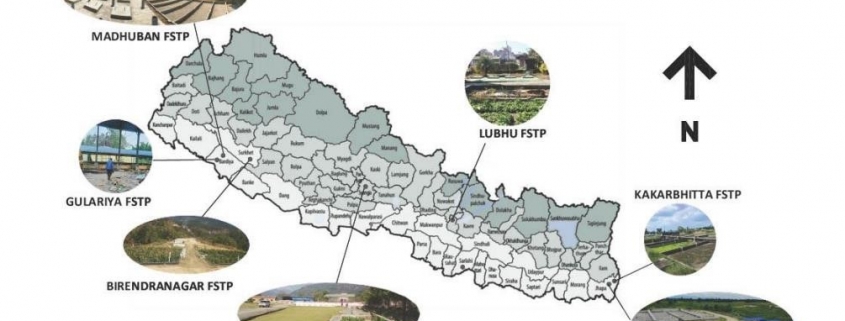Assessment of Operational Status of Fecal Sludge Treatment Plants
The demand for safely managed sanitation services is increasing with the rise of the global population. The declaration of open defecation-free (ODF) in 2019 has ensured access to toilets to all in Nepal but increased the challenge of safe management of generated sludge from these toilets. Ten Faecal sludge treatment plants (FSTP) have been established by 2022 but studies on their operational status are limited. This paper aims to present the operational status and implication of social, financial, technical and managerial aspects on the operational good/poor status of seven FSTPs in Nepal. The study was conducted through literature review, deskwork, key informant interview (KII), multi-stakeholder consultation meeting (MSCM), field observation and data analysis. The study was conducted in 6 operational FSTPs; Lubhu, Gulariya, Charali, Kakarbhitta, Waling and Birendranagar, and one established but not operational FSTP; Madhuwan. The FSTPs were accessed on 7 indicators in total considering social, managerial, technical and financial aspects. None of these FSTPS was in good operation in all aspects. However, Gulariya and Waling FSTP were in the satisfactory condition given the treatment quality meets the standards protecting the public health of locals. To conclude, FSTPs in Nepal are still facing challenges in operating in good condition.





Leave a Reply
Want to join the discussion?Feel free to contribute!